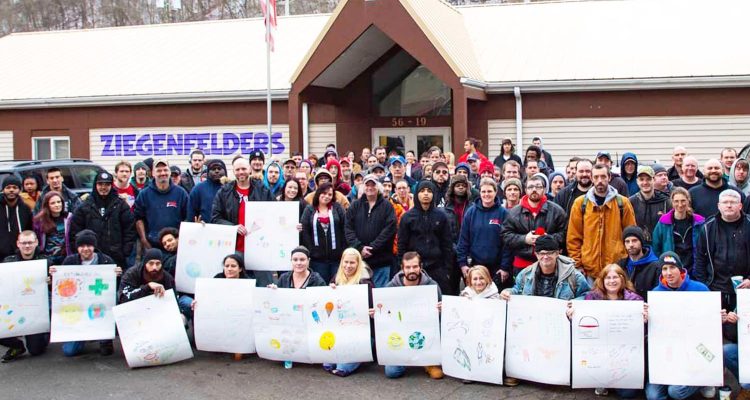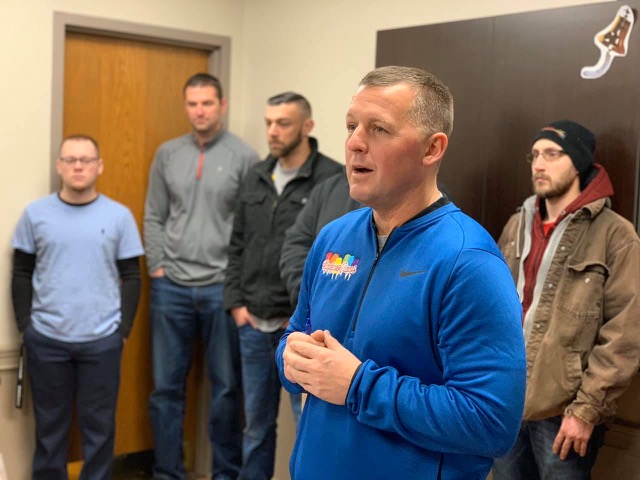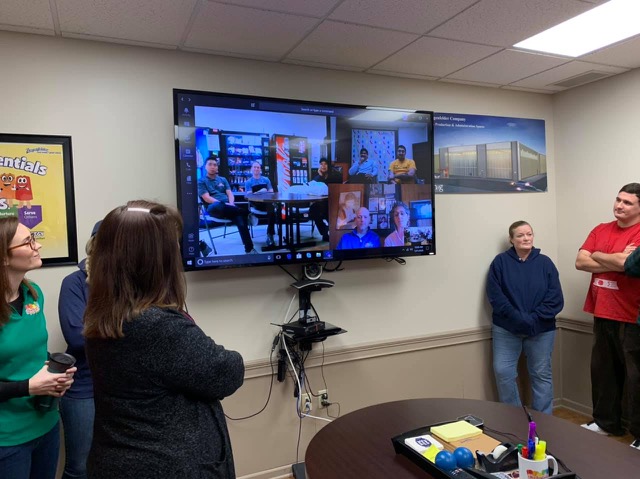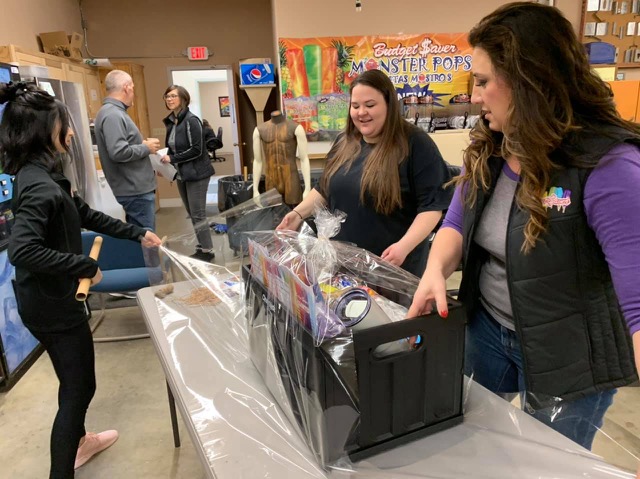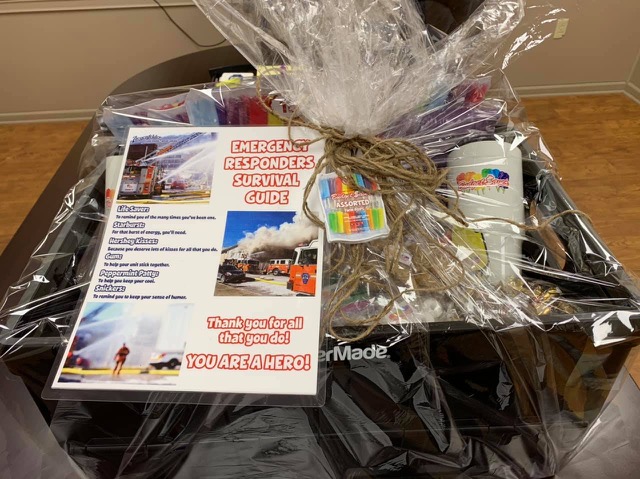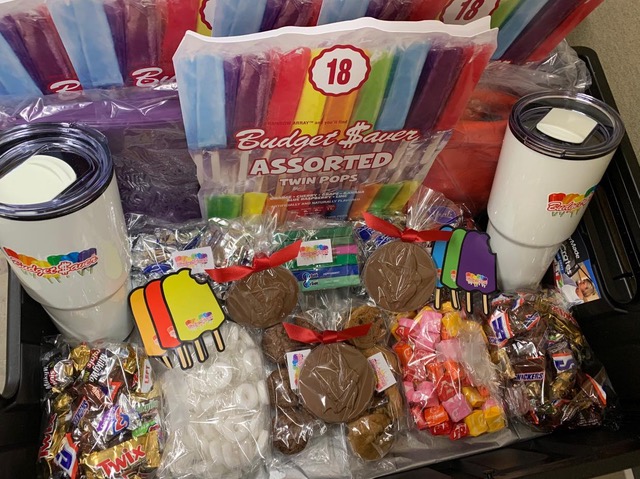It was a bitterly cold winter day, with highs reaching only 11 degrees. Most people in Wheeling were rushing here and there to get out of the frigid cold on that Thursday morning, but soon everyone’s attention would be focused on what was happening outside on 18th street.
One of Wheeling’s favorite, longstanding businesses was about to face the biggest challenge of its history.
The Ziegenfelder Company, which puts Wheeling proudly on the map as being the largest twin pop manufacturer in the country, was on fire.
Barry Allen, Ziegenfelder’s chief people officer and chief customer officer, was on a conference call conducting business as usual on the 19th street side of the plant, when at around 10 a.m. he and his coworkers heard the fire trucks. Then, their cellphones all started to buzz.
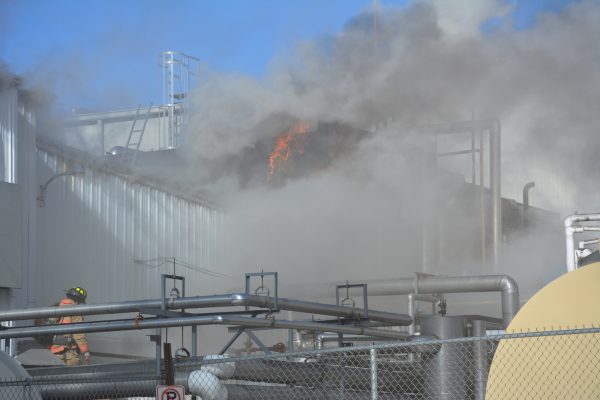
‘THE WORLD SHIFTED’
“Initially, you think this won’t be a big deal. Then you walk over there, and your mouth just drops open,” Barry explained of seeing the fire in person. Watching the fire burn on that historic day was unlike anything else he has experienced. “Your life is changing right in front of your eyes. The world shifted.”
This day last year was a particularly hard one for CEO Lisa Allen. She was also in the same meeting and had just announced her retirement plans for the end of the year and her goals for the company. Once the texts and calls came during that meeting, thoughts of retirement were replaced with dealing with the crisis at hand. And Lisa ran out of the meeting and up the street.
“I rounded the corner and gasped. There was dirty black smoke billowing from under the roof of the 1920s wooden section of our building, and it looked angry and felt unrelenting. I knew this was bad.”
It didn’t take long for her to think of her employees.
“My first thoughts were: ‘Oh my God, where is everyone? Are they accounted for?’” And then she saw them in the designated gathering area for fire drills. “Eleven degrees, no coats, everyone standing in the cold … our tribe knew the drill. Frightened and cold, everyone was accounted for, and off we went to our 19th street offices to warm up — which was to become our new home.”
Ziegenfelder lost the oldest part of their building that day. Office space, the maintenance department where tools were kept and two production lines were up in flames. The cause of the fire is believed to be a malfunction of a heating device being used to thaw metal piping. It took 48 hours to fully understand the impact of the fire and water damage from battling the flames.
Those who watched the story unfold one year ago can probably recall the images of firefighters covered in icicles as they battled the blaze in the cold. Wheeling Fire Chief Larry Helms remembers that “the first thing we faced was such a large magnitude of fire with only having the initial response being 12 people, which puts you at a disadvantage.” The demand for water was much greater than an average fire, which eventually turned the situation into a three-alarm fire — meaning all of the Wheeling resources were tapped, and Helms and his team had to reach out to neighboring departments for help.
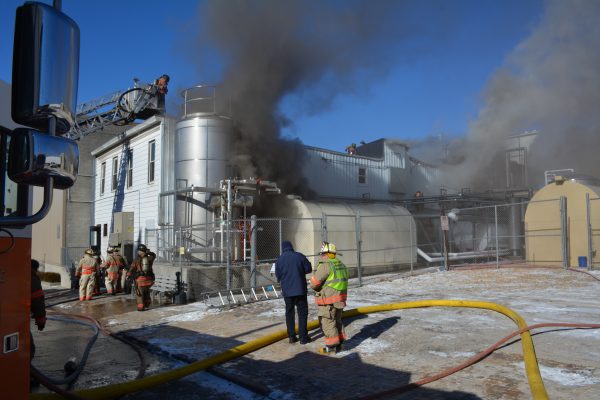
Martins Ferry Fire Department arrived on the scene, and off-duty volunteers and St. Clairsville’s Cumberland Trail Fire Department were prepared to step in if any other fires might occur elsewhere in Wheeling.
“It was one of the coldest days of the year, and we had a lot of challenges with not only freeze-ups on the trucks, but it became extremely icy for our personnel working on the scene. Our City Operations actually came out and assisted with putting down salt and cinders so our firefighters weren’t falling all over the place on the ice,” Helms said.
Kelly Greathouse, corporate communications and public relations coordinator for Ziegenfelder, said she felt shock, much like everyone else, watching the fire burn. “I don’t think any of us in those initial moments knew what was happening, even in the days after. It took us all a second to understand the full gravity of it.”
With the fire came no power, and with no power came a very immediate problem — 40 million twin pops sitting in a freezer. The company makes the frozen treats in advance, and suddenly something had to be done with them before they lost millions of dollars in product. Barry Allen said a network of people led by Kevin Heller, chief operating officer, came together to secure trucks from all over the country to transport the still-frozen treats to a storage facility — to eventually stock the shelves at Walmart, Dollar General and Kroger stores.
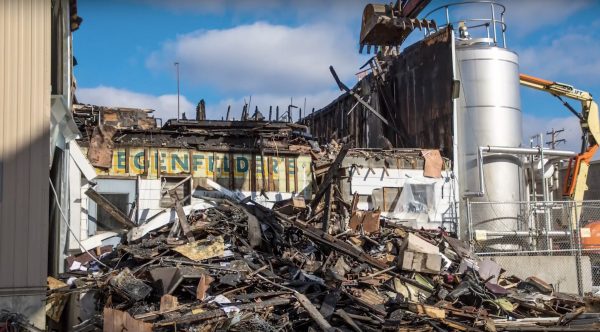
THE ZIEGGY TRIBE
 The Ziegenfelder business is over 100 years old and one of the oldest-running Wheeling companies to date. Recently retired, Lisa Allen is a third-generation family member of the business — the daughter and granddaughter of former owners. In the beginning, the company sold candy and eventually ice cream, and then in the 1980s, the decision was made to sell only frozen treats. Their motto has been to make a product that looks good, tastes good and is affordable, and this motto has been key in their success.
The Ziegenfelder business is over 100 years old and one of the oldest-running Wheeling companies to date. Recently retired, Lisa Allen is a third-generation family member of the business — the daughter and granddaughter of former owners. In the beginning, the company sold candy and eventually ice cream, and then in the 1980s, the decision was made to sell only frozen treats. Their motto has been to make a product that looks good, tastes good and is affordable, and this motto has been key in their success.
The “Zieggy Tribe” — what the Ziegenfelder community has been affectionately nicknamed — was never stronger than it was immediately after the fire.
“On Friday [the day after the fire], we brought 150 employees in and fed them breakfast,” Barry explained. It was important for the company to reassure their tribe of workers that no one would lose their jobs because of the devastating fire. The company only needed about 25 employees to keep working while the company got back on its feet. As for the rest of the team, Ziegenfelder had other plans.
“We could either not pay people and send them home, or we could pay them to go to training,” said Barry. Ziegenfelder worked with West Virginia Northern Community College to get their employees safety training when most production was halted. For the two weeks following the fire, employees would clock in at 8 a.m. and then take a course on safety, be fed lunch and go home early, all without affecting their paychecks.

That kind of commitment to their employees goes a really long way in the Wheeling community. Ziegenfelder is known for its “second chances” policy when hiring employees. The idea that every person deserves a second chance, despite what their past might hold, gives the company a unique standing in the city as being a place where former inmates can find employment.
And their willingness to help their community members in that special way doesn’t go unnoticed. The breakfast that was served for the employees after the fire was donated, as were subsequent free lunches.
Barry said he would get texts from many other business owners in the city simply asking, “What can I do?”
“We got cards and letters, random stuff. It’s almost impossible to explain,” Barry said of the outpouring of support from the community. “Bob Evans started bringing meals for us. Jim Kepner of Kepner Funeral Home asked what we needed, and when I told him we could use some water, within two hours we had 20 cases of water delivered.” Riesbeck’s, McDonald’s, Generations, Perkin’s and others provided meals, as well.
Youth Services Systems and Rabbi Joshua Lief of Temple Shalom were concerned that employees would not be getting paid while the company rebuilt after the fire, and both collected funds. The donations were so plentiful that Ziegenfelder worked with Catholic Charities to put all monetary donations to good use. Today, employees at Ziegenfelder can use those funds when they fall on hard times to pay bills or buy groceries when needed, which turns the tragedy of the fire into the complete opposite of what was initially feared — the fire actually became a stepping stone toward a stronger workforce for the company.
THE FUTURE
“What doesn’t kill you only makes you stronger,” Barry laughs, reflecting on the past year. It took only 14 days for Ziegenfelder to get back up and running at full capacity after the fire, which is no small feat after such a tragedy. The effects of that fateful day are still felt in many ways — some small, some big.
It has forced some coworkers to work closer to each other, quite literally. The offices are still gutted with no walls, and some members of the management team crowd into one room and sit at one long table together. While the close quarters make some things, such as personal phone calls, a little difficult, they’ve also learned to work together.
One big way the effects are felt is in the day-to-day business. Barry says, “We were forced to look in the mirror, and we realized we needed some work.” The company had been growing very quickly, and the fire made everyone slow down and address some issues that had been overlooked in the past.
Today the company has a five-year growth plan to double business; they have invested more money into their facilities; and, most importantly, they are investing more in their people. A key future goal of the company is to hire an in-house counselor who can be there for the employees to help with addiction or mental health issues they might be facing. They have already seen a decline in turnover in the last year, largely because of changing their hiring process and investing in their employees, and adding a people and culture department.
LOVE OF COMMUNITY
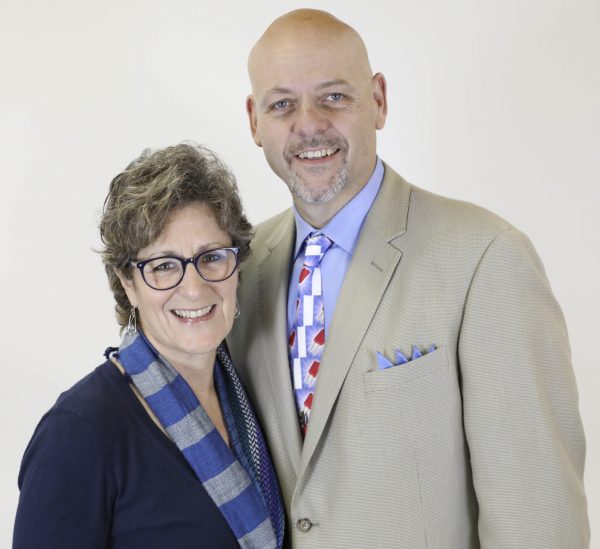
None of this would have been possible without the support of the Wheeling community. From firefighters who put their lives on the line to help save the business, to those who sent food and donated money for employees’ salaries, the support was there every step of the way.
“The way our community rallied around our tribe is emotional and difficult to describe,” Lisa Allen says. “Prayers, food, funding, supplies, more prayers and food — we are so blessed, so thankful.”
Kelly Greathouse points out that Ziegenfelder is a fixture in the community and, when this event happened, “it allowed the community to give back and help.”
The company that strongly believes in second chances had a taste of its own philosophy on that fateful day and the year that has followed.
“At the end of the day, Wheeling is a caring community,” says Barry.
The product that puts Ziegenfelder on the map continues to be made despite the obstacles caused by the fire, thanks to their dedicated tribe and all who have helped this past year. The Ziegenfelder Company continues to give back and help others in need, and the Wheeling community proved it can and will do the same for its Zieggy Tribe.
EMPLOYEES MARK THE ANNIVERSARY
• Kelly Strautmann lives out in the country of Cameron, West Virginia, and proofreads in the city of Wheeling. She has a supportive and talented husband and two ridiculous daughters who keep her busy and full of love.


